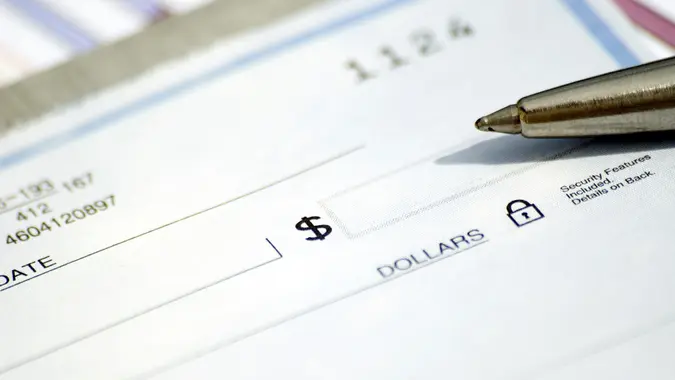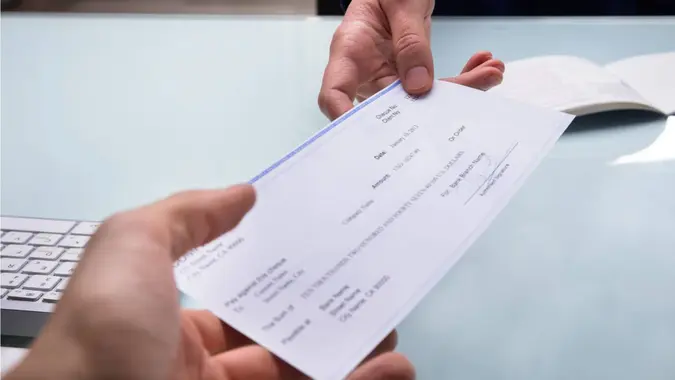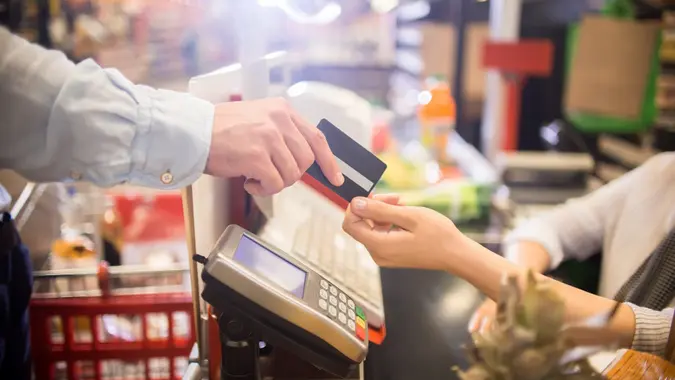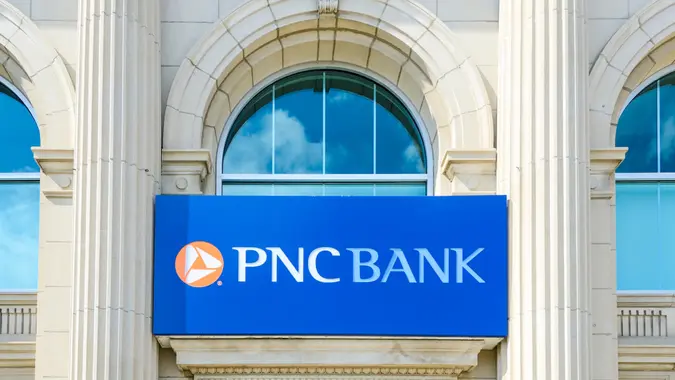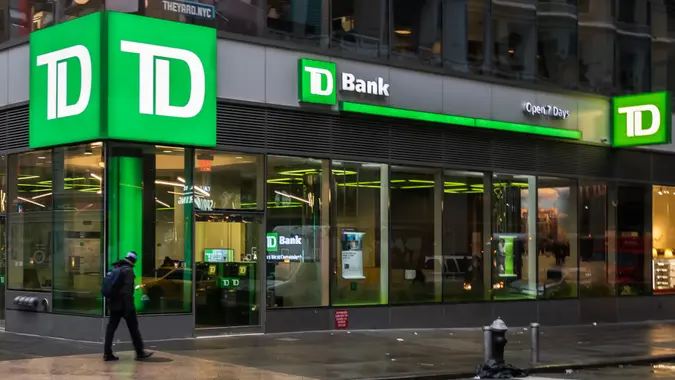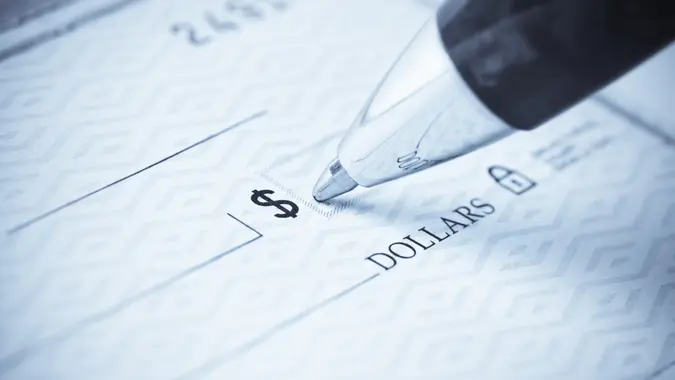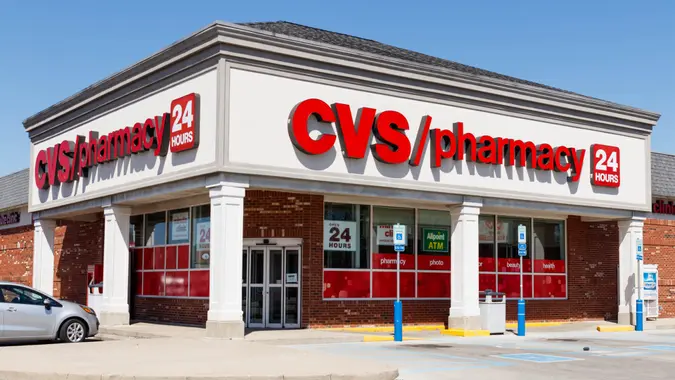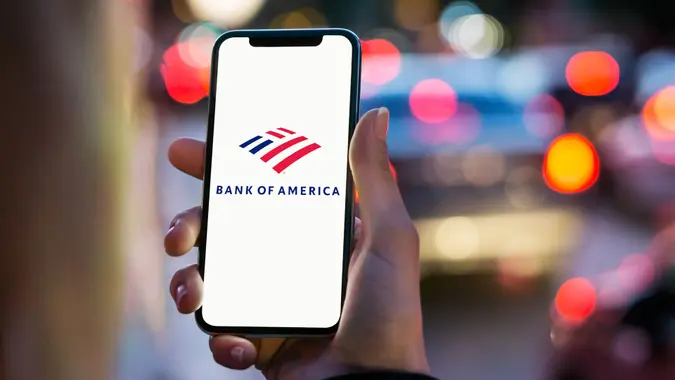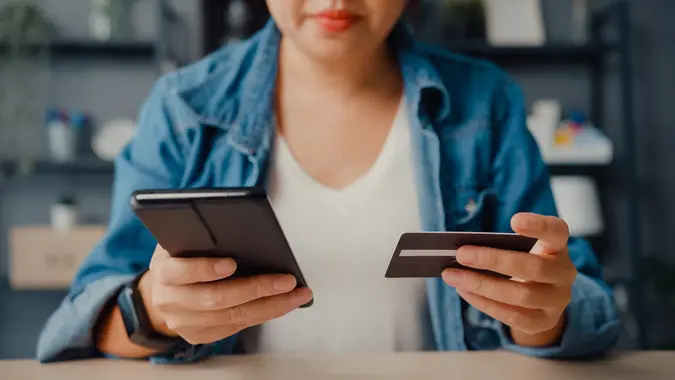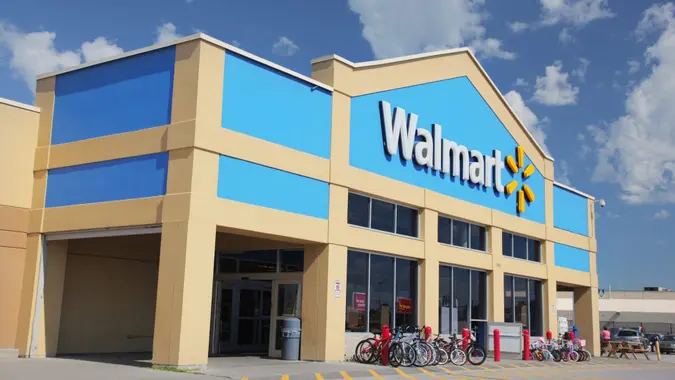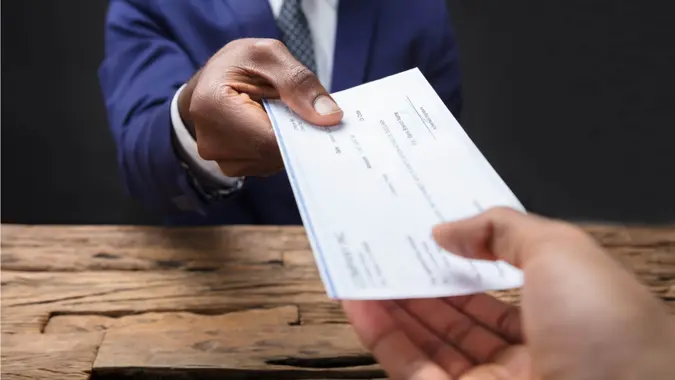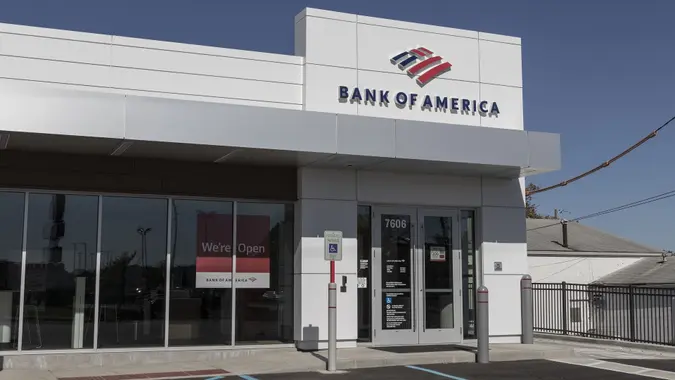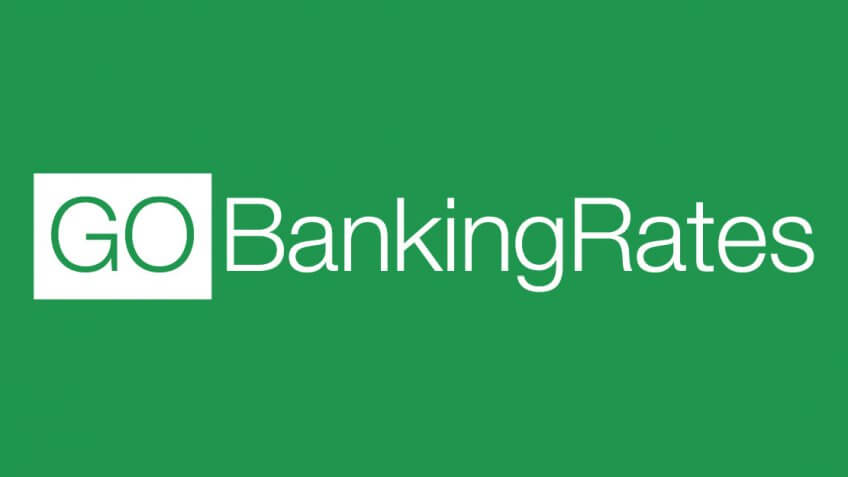What Is a Stop Payment and How Does It Work?

Commitment to Our Readers
GOBankingRates' editorial team is committed to bringing you unbiased reviews and information. We use data-driven methodologies to evaluate financial products and services - our reviews and ratings are not influenced by advertisers. You can read more about our editorial guidelines and our products and services review methodology.

20 Years
Helping You Live Richer

Reviewed
by Experts

Trusted by
Millions of Readers
A stop payment is a request you make to your bank or credit union to cancel a check before it’s processed. This step can help protect your money and prevent unwanted transactions.
How Does a Stop Payment Work?
You can request a stop payment on a check through the bank or credit union that holds your account. Most banks let you do this in a few ways:
- Through the online banking website
- By visiting your local banking branch
- By calling customer service
Before you begin the process, you will need to have the following information:
- Check number
- Routing number
- The date you wrote on the check
- The exact dollar amount on the check
- The name of the recipient or payee of the check
It’s important to act quickly — a stop payment must be placed before the check is cashed.
Reasons to Request a Stop Payment
There are several reasons to request a stop payment:
- You wrote the check for the wrong amount, date or recipient
- The check has other incorrect information on it
- You believe you wrote a check for a scam
- You no longer need to make the payment
- The check was lost, stolen or damaged
How Long Does a Stop Payment Last?
A stop payment will last six months on a personal check. After six months, you can request another stop payment, but checks generally become “stale dated” after six months.
When a check is “stale dated,” financial institutions are no longer obligated to process or cash the check.
How To Stop Payment on a Check
If you want to stop payment on a check, use the steps below to work through the process quickly:
- Contact the bank: Depending on the situation, you might let your bank know online or in person.
- Provide details about the payment: You’ll need to share details about the check, like the check number, recipient and amount.
- Wait: After receiving the information, the bank may be able to flag the check and stop payments on it.
Depending on the situation, you might need to follow up with the bank to confirm the check has been flagged. Expect to pay a fee for this service.
What Happens If a Stop Payment Check Is Cashed?
If someone tries to cash a check with a stop payment on it, hopefully, the bank won’t cash the check. After all, the stop payment indicates that the check shouldn’t be cashed. However, that’s not always the case.
If you request a stop payment in time and the bank cashes the check anyway, they could be responsible for refunding the money. If this happens, contact your bank right away to file a claim. In many cases, the bank will be required to return the funds to your account.
Can You Order a Stop Payment on Any Kind of Payment?
Personal checks are not the only payment method that allows you to make this request. You can order a stop payment on the following types of payments:
- Personal checks: This is the most basic type of stop payment request. There is usually a fee for the request, and it is in effect for six months.
- Cashier’s checks: Cashier’s checks, teller’s checks and certified checks can have a stop payment go into effect 90 days after the check has been issued.
- Money orders: You can make a stop payment request on a money order. You must fill out a form and send it to your financial institution before the money order has been deposited or cashed. However, you cannot make a stop payment request on a money order through the United States Postal Service once it is in the mainstream.
- Electronic payments or ACH transactions: Stop payments last indefinitely for payments made electronically through the ACH network — these include direct deposits.
Alternatives To Stop Payments
If you don’t want to, or cannot, pursue a stop payment, consider the following alternatives:
- Contact the payee: Getting in touch with the payee on your check to explain the situation might lead to them not cashing the check.
- Communicate your frustrations: If you want to stop payment after receiving an unsatisfactory product or service, get in touch with the provider. Depending on the situation, they might accept partial payment or provide a replacement product to resolve the situation.
What to Do After You Request a Stop Payment
Keep an eye on your bank account to see if the check is cashed. If you requested a stop payment because of a mistake on the check, make sure you are still able to pay the vendor.
Jared Nigro contributed to the reporting for this article.
FAQ
- Can You Stop Payment on a Cashier's Check?
- Generally, it's not possible to stop payments on a cashier's check. That's because the funds from a cashier's check are drawn directly from the bank instead of your account. But if the cashier's check is lost or stolen, the bank might be able to stop payments on it.
- How Many Stop Payments Can You Make?
- The number of stop payments you can make varies based on the financial institution you work with. Some banks limit the number of stop payments you can make. But others don't have a limit.
- Is It Legal To Stop Payment?
- Yes, it's legal to stop payment on a check as long as the account is yours. However, stopping payment to avoid paying a legitimate debt could be considered fraud, depending on where you live. To stay on the safe side, make sure you follow your bank's rules and state laws when requesting a stop payment.
Our in-house research team and on-site financial experts work together to create content that’s accurate, impartial, and up to date. We fact-check every single statistic, quote and fact using trusted primary resources to make sure the information we provide is correct. You can learn more about GOBankingRates’ processes and standards in our editorial policy.
- HelpWithMyBank.gov. "Can I put a stop payment order on a cashier's check?"
- HelpWithMyBank.gov. "Can the bank pay a check after I place a stop payment on it?"
 Written by
Written by  Edited by
Edited by 



